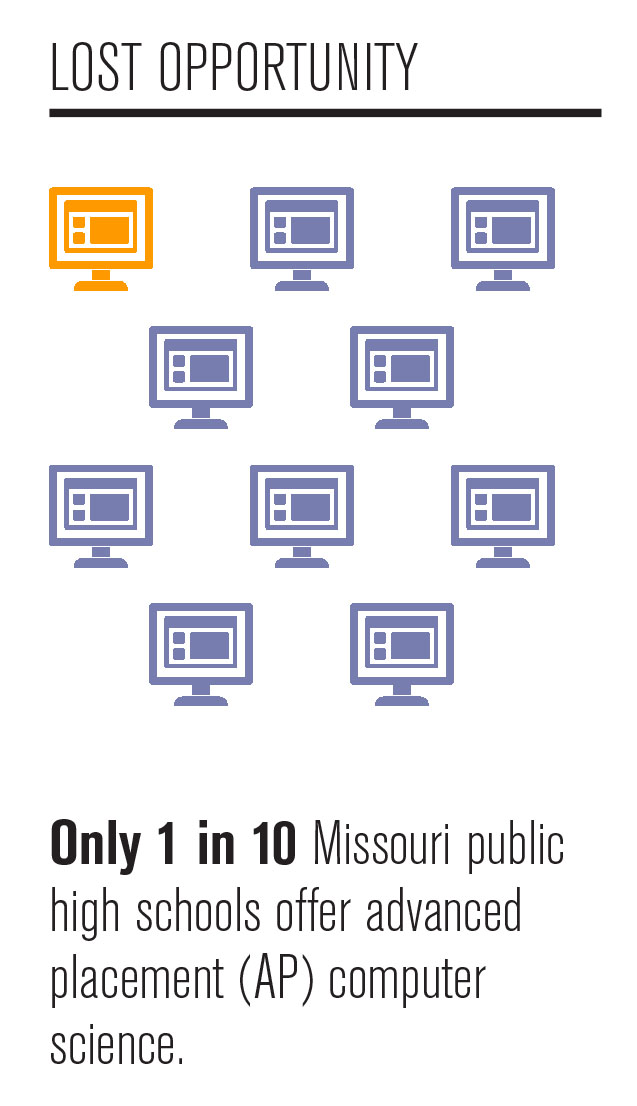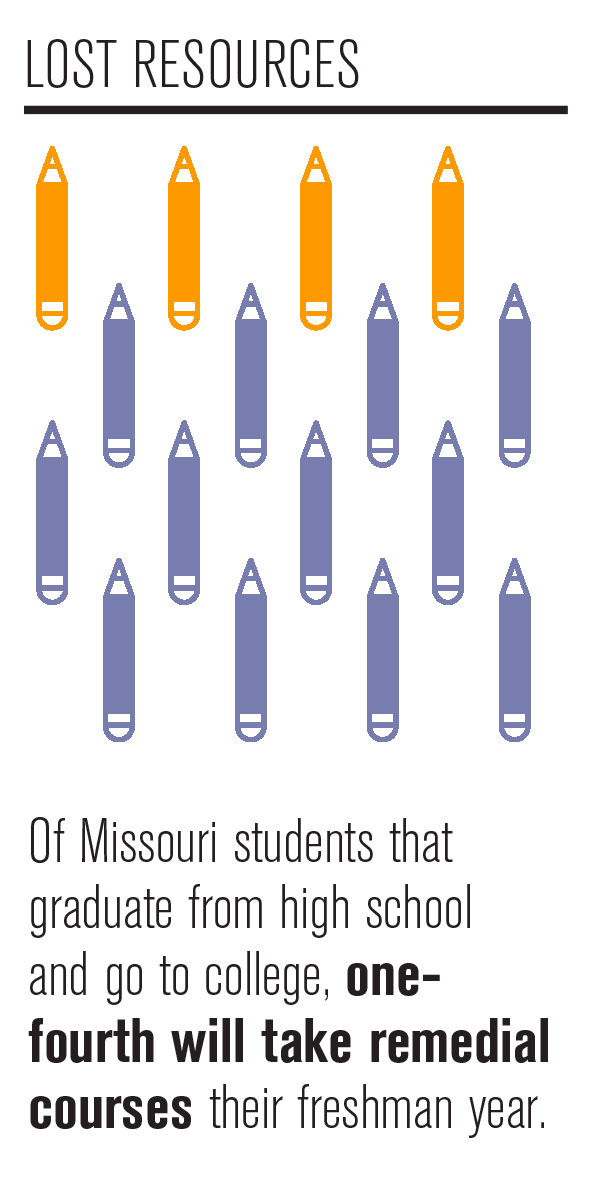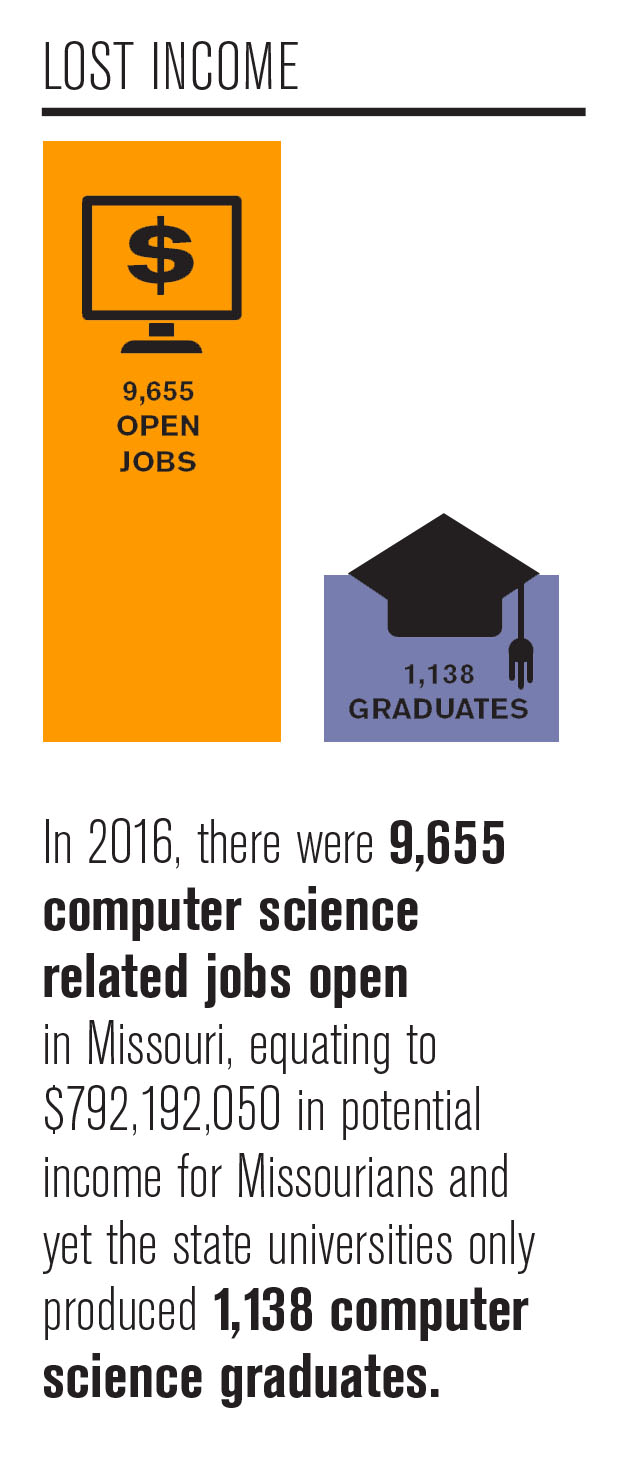Workforce readiness
Missouri’s failing education system has a real impact on the state’s economy.
The problem is bigger than any one student or any one community. This is a problem for our entire state.
Missouri is falling behind in the race to have a highly qualified and well-educated workforce.
Consider these facts:
- Compared to the nation and to neighboring states, Missouri’s economy has hardly grown over the past 20 years.
- Improving Missouri’s education system could bring over a trillion dollars to the state in the next ten years.
- Only 15 % of Missouri business owners believe that Missouri high schools are preparing students for the workplace.
Economists who have examined the state agree:
“The costs of not improving our educational system in Missouri are extraordinarily large. We have to push harder on the incentives that we know will have positive impacts. Just as importantly, we have to actively consider truly dramatic options. To achieve true change, we must not shy from large changes in parental choice, teacher evaluations and pay, and strengthened accountability.”
Although Missouri has one of the highest graduation rates in the country, many graduates find themselves unprepared when they enter college or the workforce as a result of the education they received in Missouri schools.
- According to 2022 data, out of all recent high school graduates who enrolled as freshmen in state colleges and universities, 16.9 percent had to take at least one remedial course.
- In 2017, the percentage of Missouri 11th-graders who scored Proficient or above on the state assessments was 35 percent in English/language arts, 15 percent in math, and 20 percent in science.
- Only 42.5 percent of 2017 graduates were “College or Career Ready.”
- Out of more than 500 school districts in our state, only 69 schools (21% of MO schools with Advanced Placement programs) offered an AP Computer Science course in 2016-2017.
It is time for Missouri to take control of its future
Missouri must improve its education system if it hopes to create the workforce of tomorrow.
Doing so will require innovative thinking to expand access to high-quality schools that fit students’ needs and reinvigorate both the rigor and curricula in those schools.
Other states have found success in improving college outcomes and their workforce by creating systems that allow students and parents greater access to charter and private schools.
A 2016 study in the Journal of Labor Statistics found that attending Boston’s charter high schools significantly a student’s likelihood of qualifying for state-sponsored scholarships, boosted SAT scores sharply, and increased the likelihood of taking an Advanced Placement (AP) exam, the number of AP exams taken, and AP scores.
Anda recent Urban Institute study showed that Florida’s voucher system not only improved college attendance but also increased college graduation.


